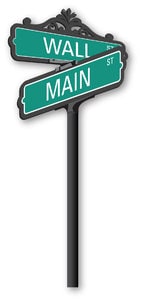Rhodes v. AIG Warns of Insurance Company Involvement in Georgia Trucking Accidents

Rhodes v. AIG is a case arising out of an accident between a truck and a vehicle. The main issue discussed in this decision is the promptness and reasonableness of the settlement offers made by the insurers.
Plaintiff was driving in front of an eighteen-wheel truck when the truck rear-ended her vehicle. There was no dispute in this case as to whether the accident was caused by the negligence of the defendant truck driver.
Defendant Carl Zalewski was a driver for Driver Logistic Services (DLS) which had a primary automobile insurance policy of $2 million with Zurich and an excess umbrella policy of $50 million with National Union Fire Insurance Company (“National Union”). AIG Domestic Claims (“AIGDC”) was the claim administrator for National Union.
Excess insurance is usually used to supplement primary insurance and it transfers the risk to an insurance carrier. This is commonly seen with larger companies as they try to protect themselves from losses associated with accidents.
Upon the impact of the defendant hitting the rear of the plaintiff’s car, plaintiff fractured her spinal cord causing her to become a paraplegic. Plaintiff was in the hospital for three months after a spinal fusion surgery. Her paraplegia created other medical conditions which she would not have had if she were never involved in this accident.
Victim and her family sued the truck driver, the truck driver’s employer, and the two insurance companies involved. Victim won an award in her case against the truck driver and his employer, however the case against the primary and excess insurance carriers continued.
Plaintiff indicated that the insurance companies failed to effect a prompt, fair, and equitable settlement of the plaintiffs’ claims by engaging in willful and knowing unfair settlement practices. Because plaintiff believed the insurance companies were violating the statute that prohibits this type of action, plaintiff sued.
During the discovery process, plaintiff settled with the excess carrier and maintained their lawsuit against the primary.
This court was charged with dictating which law was applicable when measuring the damages the plaintiff was entitled to recover. The court cites the law which indicates that the plaintiff is required to prove that because of the defendant’s unfair and deceptive act, the plaintiff suffered an adverse consequence or loss. The reason for this law is to increase potential penalties for insurance companies who engage in these unfair settlement practices since the way to calculate the damages is to multiply the underlying tort award by two.
The court said that the primary insurer was not guilty of violated their duty to effectuate settlement. Because the plaintiff had already settled with National Union, the court stated that it became irrelevant if the plaintiff could prove the causal link between her injuries and the insurer’s pre-verdict violation, because the plaintiff could not collect damages twice.
But the court warns the legislature that in a case such as this, were the plaintiff not to have settled, the award would have been $22 million for punitive damages. This is because the controlling statute on punitive damage awards for unfair and deceptive acts in settlement.
Understanding when to sue and when to settle are tactical decisions which our experienced attorneys can help you make.
